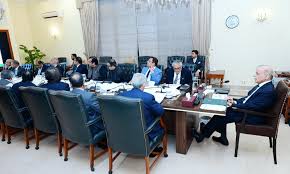Prime Minister Muhammad Shehbaz Sharif presided over two separate high-level meetings in Islamabad on August 5, 2025, addressing critical matters related to Pakistan’s economic direction. These meetings, though held on the same day, covered distinctly important national priorities one focused on the performance and reform agenda of the Federal Board of Revenue (FBR), and the other on enabling accessible and timely agricultural loans for farmers across the country.
In the first meeting, Shehbaz Sharif reviewed the operations, ongoing reforms, and revenue targets of the FBR. The discussion revolved around the persistent challenges in expanding the tax net, improving collection efficiency, and ensuring that tax policy aligns with economic growth goals. The Prime Minister received a detailed briefing on the FBR’s digital transformation efforts and performance metrics for the current fiscal year. He expressed concern over areas where revenue shortfalls or procedural inefficiencies remained unresolved and called for accelerated efforts to modernize tax systems and introduce transparency across all levels of the department.
He instructed the FBR to move swiftly toward real-time data integration with other federal institutions such as NADRA and the banking sector to better trace taxable assets, incomes, and transactions. He urged that automation and simplification of tax filing procedures should become a core part of FBR’s public engagement to enhance trust and voluntary compliance. The Prime Minister stressed that tax reforms were not merely administrative matters but essential tools to reduce Pakistan’s reliance on external debt and to build a self-sustaining economy. He proposed the creation of a performance-based review system within FBR and directed the Ministry of Finance to conduct quarterly evaluations of tax collection efficiency and compliance expansion.
Separately, in the second meeting of the day, Prime Minister Shehbaz Sharif turned his attention toward the rural economy by leading a strategic session focused on facilitating agricultural loans for farmers. Acknowledging that agriculture remains the backbone of Pakistan’s economy, he reiterated that empowering farmers with access to credit is fundamental for increasing crop productivity, encouraging modernization, and reducing rural poverty. The Prime Minister emphasized that many smallholder farmers continue to be excluded from formal financing channels due to excessive bureaucracy, high interest rates, and a lack of financial literacy.
In this session, he directed relevant stakeholders including the Ministry of National Food Security, the State Bank of Pakistan, and leading financial institutions to work together in designing simplified, farmer-centric credit products. He called for the use of mobile technology and digital banking platforms to extend loan access even to remote areas, especially during the sowing and harvesting seasons when financial liquidity is most critical. He also advised that banks introduce easy-to-navigate application processes with minimal paperwork and faster disbursement timelines.
The Prime Minister encouraged subsidized interest rates on loans for priority crops and livestock development. He also called for enhanced awareness campaigns that would guide farmers on how to access and manage loans responsibly. Further discussions included integrating loan schemes with technical support such as high-quality seeds, water management solutions, and soil treatment programs. The Prime Minister emphasized that loan provision must be part of a broader strategy to transform agriculture from subsistence to sustainability.
Through both meetings, Shehbaz Sharif demonstrated a dual commitment to institutional reform and inclusive growth. By reinforcing FBR’s accountability and upgrading the agriculture financing ecosystem, the government aims to stabilize macroeconomic fundamentals while ensuring that farmers who constitute a major portion of Pakistan’s population are not left behind. These back-to-back sessions signify a broader vision of economic renewal rooted in efficient governance and equitable access to resources. The outcomes from these meetings are expected to shape major policy rollouts in the coming quarters, as the government aligns itself with its goals of financial transparency, rural empowerment, and national resilience.



Comments (0)
No comments yet. Be the first to comment!
Leave a Comment